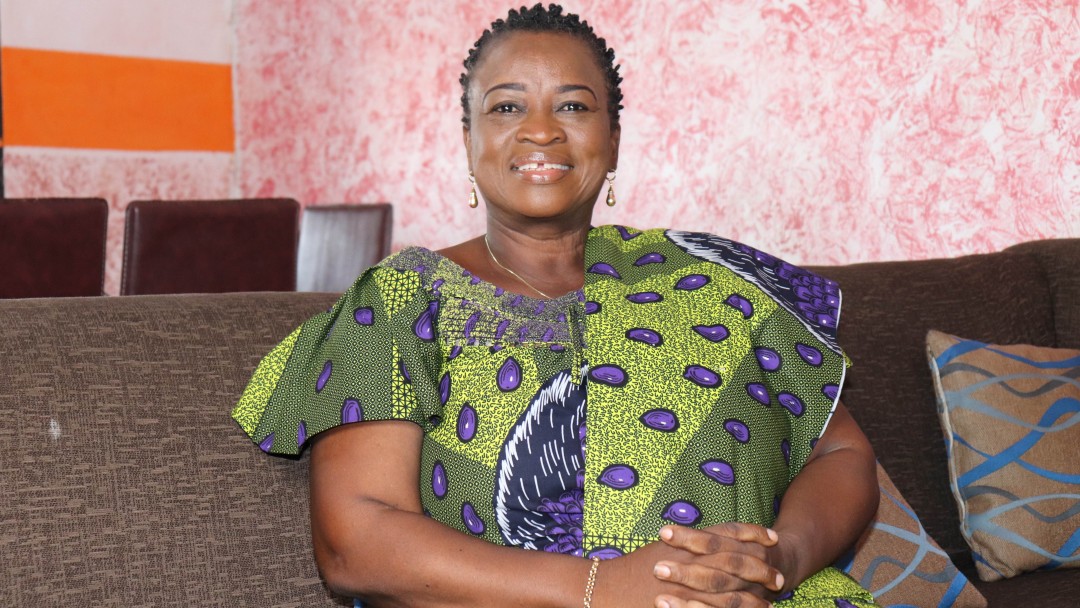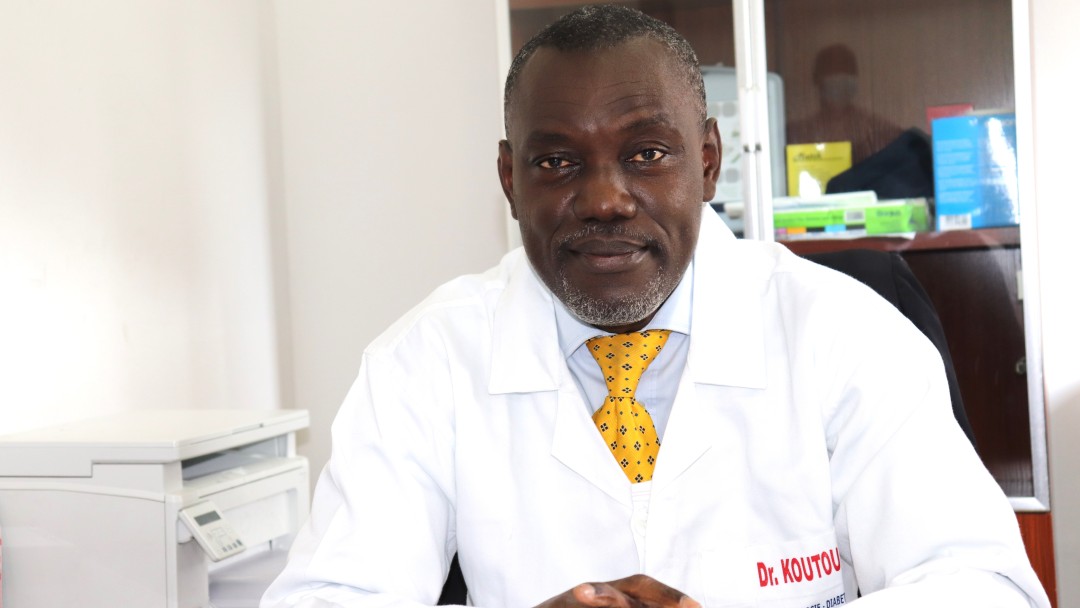News from 2020-08-03 / KfW Development Bank
Education about Corona

An already ongoing project to strengthen the health system in Côte d'Ivoire is being expanded to bring COVID-19 infection awareness to every corner of the West African country. On behalf of the German Federal Government KfW Development Bank is providing EUR 3 million for measures to raise awareness of the dangers of corona.
By Charlotte Schmitz
"Many people still do not believe in the existence of the Corona disease. Or they assume that it is a political manoeuvre," explains Gogoua Solange Lago. The chairwoman of the local women's association is sitting on the sofa of her small house in Koumassi, a district of Abidjan, in a green and purple dress. She supports AIMAS (Agence Ivoirienne de Marketing Social), the Ivorian agency for social marketing, in educating girls and young women about the dangers of early pregnancy and sexually transmitted diseases. In this West African country, far too many schoolgirls still experience unwanted pregnancies, as Solange Lago reports. But at the moment the spread of corona is adding to these risks.
Côte d'Ivoire is the worst affected country in West Africa. After the first infection with COVID-19 was discovered in mid-March, around 7,000 people were tested positive by early July. Many of her friends initially thought the new disease was a white man's disease, explains women's representative Solange Lago. "On television they kept showing pictures from Italy and the USA, so we didn't feel affected." But now she knows that the virus can affect anyone. Thanks to AIMAS' radio spots, she is aware of the most important protective measures, but complains: "Many families have no money to buy soap or disinfectant. We need to raise even greater awareness, including with loudspeaker announcements in all neighbourhoods and at markets," she suggests.
This is precisely one of the measures that AIMAS is now implementing with support from KfW. The agency is organising educational programmes on television, spots on local radios and loudspeaker-based education from moving cars. It procures and distributes hygiene and protection material. "AIMAS has been a reliable partner for German-Ivorian Development Cooperation for many years," explains KfW Project Manager Michael Reich. "In consultation with the local authorities and KfW, AIMAS adapted the health system strengthening project flexibly and quickly in order to provide the best possible support for the implementation of the national pandemic plan".
"If we manage to ensure that all the inhabitants of our country follow the government's advice and observe protective rules, a further spread of the pandemic could be prevented," hopes Kouamé Aka, leader of the Agni people in Abobo, a suburb of Abidjan. He complains that the corona outbreak is hampering work in the fields and economic activity in general. As the virus cannot be seen, it is particularly important to point out the dangers of the pandemic and to protect oneself.

Dr Olivier Koutou, Deputy Head of the Health Department of the Port Bouet Town Council, is watching the number of infected people closely. He knows that it is an illusion to believe that Africa will be spared. "The world is a globalised village and traveling is spreading the virus worldwide." He reports that so far the mortality rate from corona in Côte d'Ivoire is low. But it is imperative to prevent people at risk from becoming infected. He is grateful that AIMAS has taken measures to raise awareness very quickly. "The better informed we are, the easier it is to break the chain of infection." He says it is particularly important for AIMAS to raise awareness in local communities, as schools are currently closed – which are normally an important place for the dissemination of information.

Share page
To share the content of this page with your network, click on one of the icons below.
Note on data protection: When you share content, your personal data is transferred to the selected network.
Data protection
Alternatively, you can also copy the short link: https://www.kfw-entwicklungsbank.de/s/enzBWrMC.CSeA
Copy link Link copied